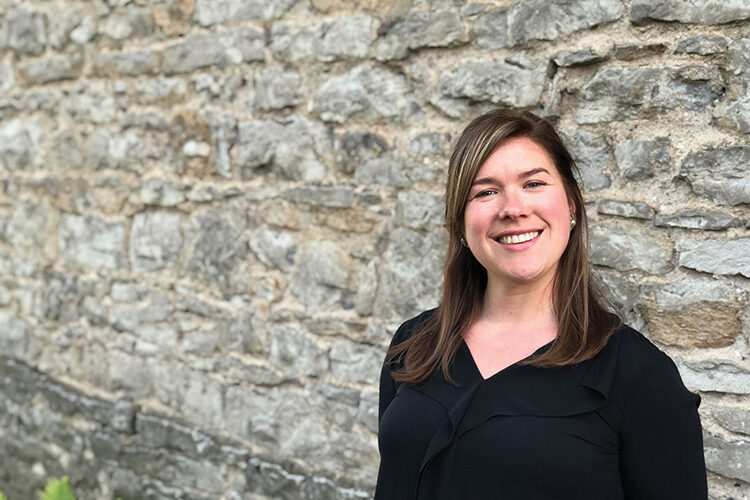What we lose when we only look through the lens of able-mindedness
Colleges and universities across the country are embracing the spectrum of race, ethnicity, gender, age, and religion that makes our species varied and interesting. But one dimension that is still too rarely the object of inclusion in higher education, according to Assistant Professor of Educational Studies Ashley Taylor, is (dis)ability.
Individuals with a diagnosis of intellectual disability — those determined to have low intelligence as measured by IQ and who have adaptive behaviors for navigating social and developmental contexts (as opposed to a learning disability, which concerns how someone learns) — are too often assumed not to be “knowers” or potential producers of knowledge, especially in educational and research settings. But what interests Taylor is not just these individuals themselves; it’s also the way able-minded people conceive of their disability, and the fact that those with disabilities don’t get to participate in that conceptualization.
“In my work, I don’t deny that people experience differences in their cognition, in how they solve problems and make sense of the world,” Taylor says. “But the way we interpret those differences — that’s where we have to focus.”
Excluding people from “the academy” based on the assumption they have nothing to contribute to research or the classroom is tantamount to educational and social injustice, Taylor says. Just as regrettable, it narrows our sense of human variation, because “when we exclude people [with disabilities] as knowers, we impoverish our epistemic frameworks. We limit the way we see and understand the world. We lose the chance to learn how they make meaning.”
These questions of exclusion and injustice are especially salient at the intersection of gender and disability. In a course she taught last fall called Feminist Disability Studies, Taylor encouraged her students to investigate how different aspects of identity, such as gender, race, class, and ability, position a person in society as a citizen or noncitizen, a member or a threat. That positioning has serious implications, as Taylor pointed out in a 2018 paper in Educational Review, arguing that excluding people based on ability effectively bars them from being knowledge citizens — that is, from taking part fully in civic and political life.
It’s hard to persuade others that an intellectual disability label does not prevent someone from having knowledge to contribute, Taylor says, in part because many people “lack intimate knowledge of and relationships with” such individuals, as they’ve long been segregated from mainstream society. To remedy that, in her first semester at the University, Taylor designed a course that included both Colgate undergraduates and students from nearby Otsego Academy at Pathfinder Village, a two-year post-secondary program for students with Down syndrome and other intellectual disabilities.
The course, titled Disability, Difference and Inclusion, focused on rights and citizenship. Students from both institutions did the same readings and participated in discussions together. By having everyone approach the materials as equals, Taylor aimed to “disrupt the differentiation between the students.” As a final project, one group of students made a video titled “Inclusion U” in which they declared, “We are more alike than different.”
If the questions Taylor is grappling with — What is “normal”? Why do we deny people with intellectual disabilities knowledge equality? — sound deeply philosophical, it’s no accident. She is an expert in philosophy of education as well as disability studies. “I’ve always been drawn to philosophy,” she says. “To me, questions for which there are no clear answers are the most fascinating questions that we can ask.”

